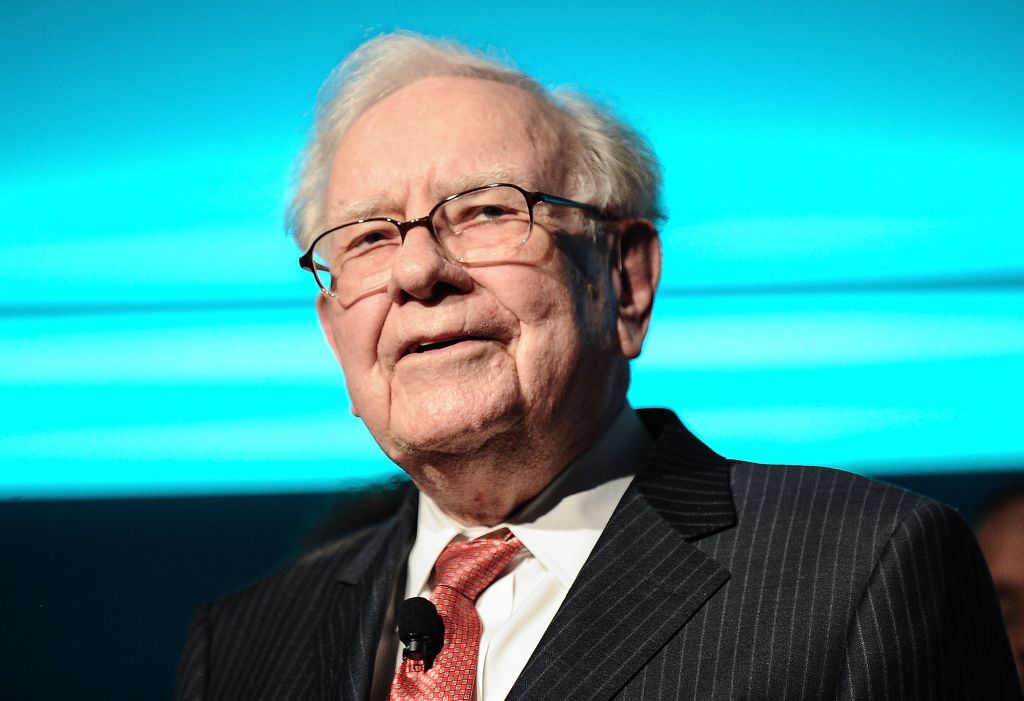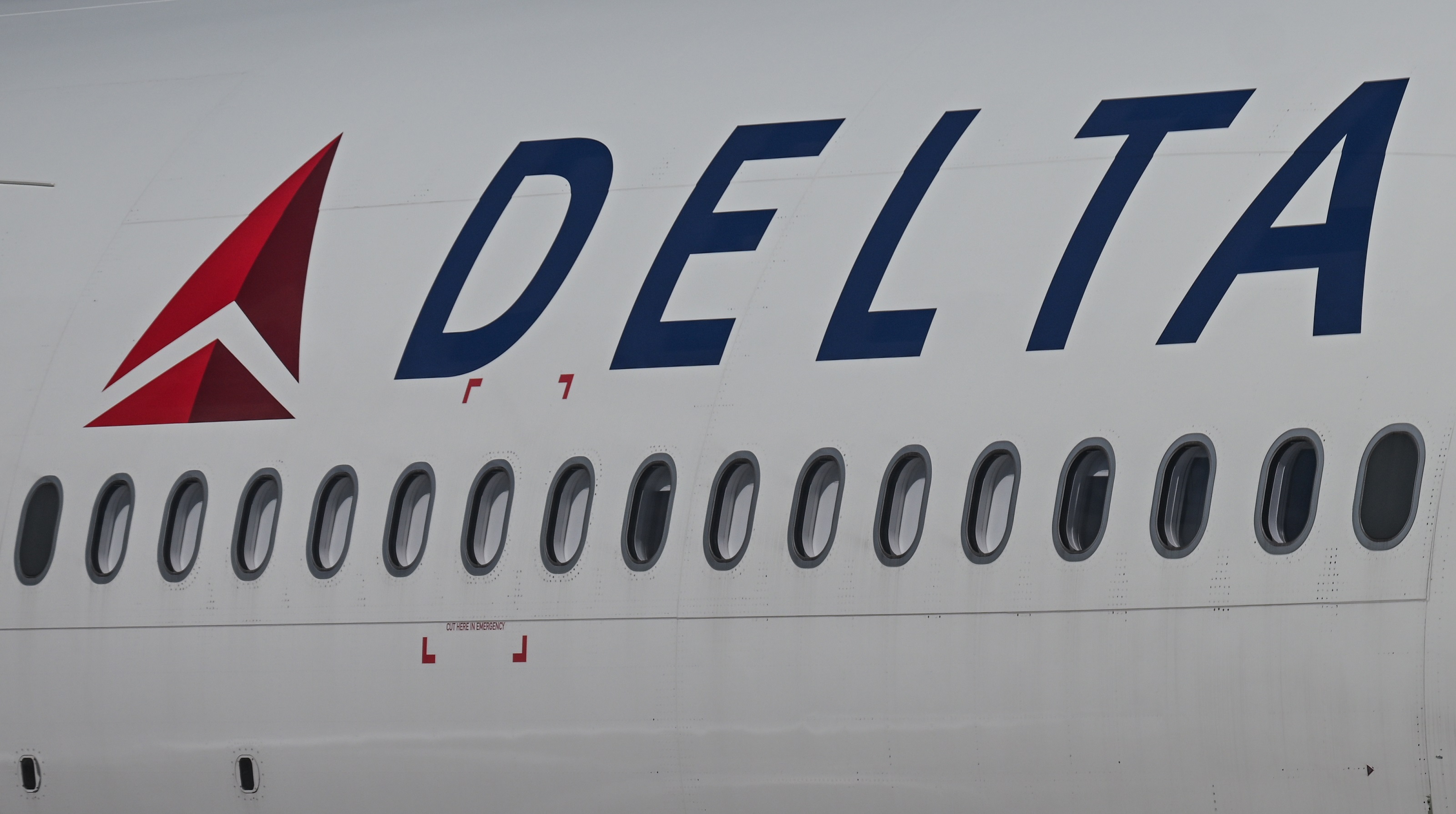Why I'm Investing in Airline Stocks
The industry has been historically turbulent, but those past problems may present opportunities today.

Profit and prosper with the best of Kiplinger's advice on investing, taxes, retirement, personal finance and much more. Delivered daily. Enter your email in the box and click Sign Me Up.
You are now subscribed
Your newsletter sign-up was successful
Want to add more newsletters?

Delivered daily
Kiplinger Today
Profit and prosper with the best of Kiplinger's advice on investing, taxes, retirement, personal finance and much more delivered daily. Smart money moves start here.

Sent five days a week
Kiplinger A Step Ahead
Get practical help to make better financial decisions in your everyday life, from spending to savings on top deals.

Delivered daily
Kiplinger Closing Bell
Get today's biggest financial and investing headlines delivered to your inbox every day the U.S. stock market is open.

Sent twice a week
Kiplinger Adviser Intel
Financial pros across the country share best practices and fresh tactics to preserve and grow your wealth.

Delivered weekly
Kiplinger Tax Tips
Trim your federal and state tax bills with practical tax-planning and tax-cutting strategies.

Sent twice a week
Kiplinger Retirement Tips
Your twice-a-week guide to planning and enjoying a financially secure and richly rewarding retirement

Sent bimonthly.
Kiplinger Adviser Angle
Insights for advisers, wealth managers and other financial professionals.

Sent twice a week
Kiplinger Investing Weekly
Your twice-a-week roundup of promising stocks, funds, companies and industries you should consider, ones you should avoid, and why.

Sent weekly for six weeks
Kiplinger Invest for Retirement
Your step-by-step six-part series on how to invest for retirement, from devising a successful strategy to exactly which investments to choose.
"Fasten your seat belts. It’s going to be a bumpy night," said Bette Davis in All About Eve, the classic 1950 film about the theater. I think I know what she meant. As a new investor in the airline industry, I am prepared for turbulence.
And abuse. After all, I have just violated the most sacred of Warren Buffett’s rules, the one that says you should never invest in anything that flies. Or as the master put it: “The worst sort of business is one that grows rapidly, requires significant capital to engender the growth, and then earns little or no money. Think airlines. Here a durable competitive advantage has proven elusive ever since the days of the Wright Brothers. Indeed, if a farsighted capitalist had been present at Kitty Hawk, he would have done his successors a huge favor by shooting Orville down.”
As a newly minted member of the Spare Orville Club, I acknowledge that the business was awful in 1989, when Mr. Buffett invested in USAir. But it really is different now. Consolidation and bankruptcies have transformed the U.S. airline industry into exactly the kind of business that Buffett likes: an oligopoly. After US Airways completes its acquisition of American Airlines, three carriers—Delta Air Lines (symbol DAL, $18), United Continental (UAL, $33) and US Airways (LCC, $17)—will control 70% of the U.S. airline business (prices are as of May 3).
From just $107.88 $24.99 for Kiplinger Personal Finance
Become a smarter, better informed investor. Subscribe from just $107.88 $24.99, plus get up to 4 Special Issues

Sign up for Kiplinger’s Free Newsletters
Profit and prosper with the best of expert advice on investing, taxes, retirement, personal finance and more - straight to your e-mail.
Profit and prosper with the best of expert advice - straight to your e-mail.
These three have been making money for the past three years and may achieve record profits in 2013. Some wise investors have noticed. At the end of 2012, David Tepper, of Appaloosa Management, had huge positions in each of the three stocks, and George Soros owned two of them.
If you didn’t know their past and just looked at the numbers, you’d find airlines appetizing. Alas, they make many investors reach for an airsickness bag. Most pros consider the industry untouchable because the airlines have historically operated irrationally and have always been at the mercy of oil prices, unions and new competition.
All of those past problems spell opportunity, and that’s why Delta, United and US Airways now account for 7.5% of my hedge fund. Airline analyst Helane Becker, of Cowen Securities, sums up the bullish case when she cites the “four C’s” that should propel industry returns: Consolidation, Capacity discipline, Charging for everything and returning Capital to shareholders.
Becker doubts many investors know that Delta is more profitable than FedEx. Delta’s operating profit margin (profits from operations divided by revenues) is 10%, or twice that of FedEx. Becker estimates that Delta will generate $1 billion in free cash flow (the money left for dividends, buybacks and acquisitions) in 2013; she forecasts $400 million for the much larger FedEx.
Bargain Prices
If you think all of this is reflected in price-earnings ratios, you’re wrong. FedEx trades at 13 times estimated 2014 earnings, Delta at just 6 times 2014 estimates. United and US Airways are also tantalizingly cheap, and Becker says US Airways shares could rise dramatically after its merger with American becomes effective.
Interestingly, some investment shops ignored their own quantitative models because airlines seemed so toxic. “Our data said the group was attractive in March 2012,” says Leuthold Weeden analyst Kristen Hendrickson, “but we didn’t buy until last November. We were still a little skeptical of the group. Today we rank it fourth out of 120 groups on attractiveness.”
Clark Hodges, of Hodges Capital, says airlines remind him of the railroads. “For 20 to 25 years, the railroads didn’t earn their cost of capital. Then things gradually changed, and Burlington Northern became our largest holding. And then Warren Buffett bought Burlington Northern.” Will Buffett swoop in to snatch an airline out of the sky? Probably not. But maybe he should.
Columnist Andrew Feinberg manages a New York City–based hedge fund called CJA Partners.
Profit and prosper with the best of Kiplinger's advice on investing, taxes, retirement, personal finance and much more. Delivered daily. Enter your email in the box and click Sign Me Up.

-
 5 Vince Lombardi Quotes Retirees Should Live By
5 Vince Lombardi Quotes Retirees Should Live ByThe iconic football coach's philosophy can help retirees win at the game of life.
-
 The $200,000 Olympic 'Pension' is a Retirement Game-Changer for Team USA
The $200,000 Olympic 'Pension' is a Retirement Game-Changer for Team USAThe donation by financier Ross Stevens is meant to be a "retirement program" for Team USA Olympic and Paralympic athletes.
-
 10 Cheapest Places to Live in Colorado
10 Cheapest Places to Live in ColoradoProperty Tax Looking for a cozy cabin near the slopes? These Colorado counties combine reasonable house prices with the state's lowest property tax bills.
-
 Dow Hits a Record High After December Jobs Report: Stock Market Today
Dow Hits a Record High After December Jobs Report: Stock Market TodayThe S&P 500 also closed the week at its highest level on record, thanks to strong gains for Intel and Vistra.
-
 Stocks Retreat as Shutdown Continues: Stock Market Today
Stocks Retreat as Shutdown Continues: Stock Market TodayWhile the main indexes closed lower today, Delta and PepsiCo gained ground on encouraging earnings reports.
-
 Stock Market Today: Solid Signals Lift Stocks Despite Tariff Noise
Stock Market Today: Solid Signals Lift Stocks Despite Tariff NoiseMarkets are whistling over the White House in an ongoing display of corporate America's enduring ability to survive and advance.
-
 Stock Market Today: Tariff Pause Triggers 3,000-Point Dow Rally
Stock Market Today: Tariff Pause Triggers 3,000-Point Dow RallyThe bond market is sending concerning signals as the Trump administration executes its rapid reordering of global trade relationships.
-
 7 of Warren Buffett's Biggest Misses
7 of Warren Buffett's Biggest MissesThe Oracle of Omaha's investing wins are well known up and down Wall Street, but no one bats a thousand. Here are some of Warren Buffett's biggest misses.
-
 Stock Market Today: Dow Slides 697 Points on Super-Hot Jobs Data
Stock Market Today: Dow Slides 697 Points on Super-Hot Jobs DataWhen the December nonfarm payrolls report hit the tape, there was no question which way stocks would go at Friday's opening bell.
-
 Delta Stock Remains a Strong Buy After Earnings
Delta Stock Remains a Strong Buy After EarningsDelta stock is soaring Friday after the air carrier beat earnings expectations and issued a strong outlook. Here's what investors need to know.
-
 Stock Market Today: Markets March Higher as Strong Earnings Offset Weakness in Chips
Stock Market Today: Markets March Higher as Strong Earnings Offset Weakness in ChipsUpbeat quarterly results helped stocks bounce back with broad-based gains.